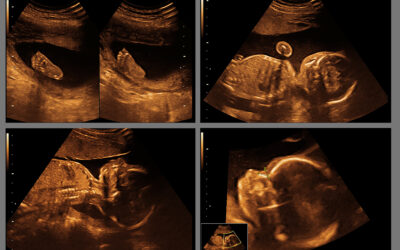Key Points
- Pennsylvania’s biology standards ought to include foundational education on early human life development.
- SB 973 and HB 606 create a healthier Pennsylvania, where those who will raise the next generation will be equipped with knowledge to make informed and healthier choices, resulting in healthier pregnancies and healthier children.
- SB 973 and HB 606 would include ultrasound videos showing vital organ development over seven specified gestational ages in the biology curriculum.
- The biology curriculum would also include high-quality, computer-generated animated renderings of an unborn baby’s development inside the mother’s womb and instruction on the effects of drugs, alcohol, and tobacco on the mother and child.
SUMMARY
As science and technology continue to advance, school curricula must keep up. Recent legislation, Senator Michele Brooks’ SB 973 and Representative Joe Hamm’s HB 606 would ensure Pennsylvania students receive early human life development education. This would empower them with foundational information about life and wellness and help them to make informed decisions to have healthy pregnancies when the time comes.
These bills would have the biology curriculum include ultrasound videos showing vital organ development over seven specified gestational ages in the biology curriculum. The biology curriculum would also include high-quality, computer-generated animated renderings [i.e., a scientifically accurate motion picture] of an unborn baby’s development inside the mother’s womb and instruction on the effects of drugs, alcohol, and tobacco on the mother and child. Students can watch an unborn baby grow from the moment he or she is conceived until the time he or she is born.
Advancements in science and technology have made it possible to view the miraculous growth of babies inside their mothers. According to the Endowment for Human Development, unborn babies have beating hearts and detectable brain waves, fingers, and toes, by nine weeks of pregnancy. At this time, a baby can also suck its thumb, open and close its jaw, stretch, and sigh. By just 10 weeks, these little lives are making breathing motions and can yawn. With this new legislation, public school students will better understand the miraculous progression of human life from conception to birth.
Knowledge about prenatal development—such as the significance of fertilization, implantation, or milestones like thumb-sucking at 10 weeks—equips high school students to make informed health choices that prepare them for healthy pregnancies after high school. For example, understanding critical periods (e.g., when organs form) can emphasize the importance of prenatal care, nutrition, and avoiding harmful substances, leading to better outcomes for future children.
Additionally, learning about early development fosters health literacy, enabling students to understand medical information related to pregnancy. This includes recognizing the importance of early prenatal visits and how environmental factors affect fetal development.
Early human development education is a natural fit with existing biology materials. Many biology curricula already include topics like cell division, genetics, and organ systems. Early human development education integrates these concepts in a real-world context, reinforcing learning outcomes. Early human development, from fertilization through embryonic and fetal stages, is a core aspect of human biology. Teaching it provides students with a comprehensive understanding of how life begins and progresses, aligning with biology’s goal of exploring life processes.
Students learning in public schools throughout the Commonwealth deserve to receive medically and scientifically accurate information about early human development of life inside the womb.
TAKE ACTION
Take Action: Ensure The Best Education for Students Through Early Human Development Education
Act Now
ADDITIONAL ARTICLES
Related Articles
Breaking News: New York Embraces Physician-Assisted Suicide. Pennsylvania Could be Next
New York Governor Kathy Hochul has announced she will sign legislation legalizing physician-assisted suicide, cloaked in soothing language about “medical aid in dying,” “choice,” and “guardrails.” Her statement claims the law will “shorten not lives, but deaths,” and...
Why Poverty Does Not Justify Abortion: 7 Dangerous Myths Debunked
Abortion is often defended as a tragic necessity, especially when poverty enters the conversation. We are told that economic hardship leaves no other option, that abortion is compassion, and that opposing it means indifference to suffering. But these false...
Physician-Assisted Suicide: Silence Now Will Cost Lives Later
Legislation to permit doctor-prescribed suicide has been introduced repeatedly in the Pennsylvania legislature over the past decade. Current proposed bills include SB 570 (Boscola) “End of Life Options Act” and HB 1109 (Hill-Evans) “Compassionate Aid in Dying.” If...
A New Generation of Leaders: Pregnancy Resource Centers, City on the Hill, and the Call to Stand
by City on the Hill alum Kaylynn Kilmer I have never felt more hopeless than when I found out my father had brain cancer. There was nothing that could have prepared me for that moment. I had been trained by Godly parents who had always ensured I had all I needed...
Pennsylvania’s 2024 Abortion Report: A Mixed Reality of Hope and Heartbreak
The PA Department of Health has released its 2024 Abortion Statistics report, and it presents a sobering mix of tragedy and triumph. For those committed to protecting life, this annual state report must remind us that the work ahead remains urgent. A Sign of Hope:...
How did your State Rep vote on the Abortion On-Demand Bill?
A week before Christmas, the PA House Democrat leadership brought to a floor vote House Bill 1957, a bill that would enshrine abortion on-demand into our Commonwealth's Constitution, and jeopardizing every pro-life limit in our state, like the limit to not use your...






